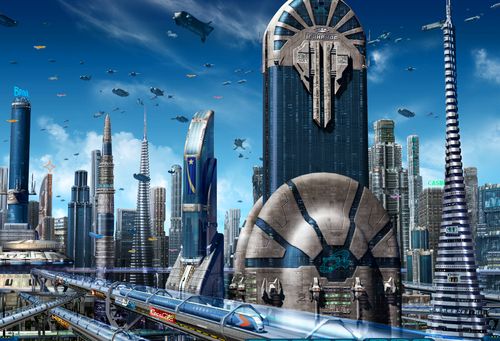Awereness:
Students read the text and try to highlight structures that express future.
Controlled drills:
Students try to change sentences in Present Simple into Future Simple.
e.g. She reads a book-> She will read a book.
Meaningful drills:
The teacher asks students some yes-no questions about the future. They try to answer in a full sentence.
e.g. T: Will you go to the cinema tomorrow?
S: Yes, I will go to the cinema tomorrow./ No, I will not go to the cinema tomorrow.
Guided, meaningful practice:
Students have to complete the phrase:
During the next holidays I will…
(Structure-based) free sentence composition:
Students are given `problem cards'. They try to predict what decisions the people shown on the cards will make. They should use the Future Simple structure.
E.g. `I am hungry' S: He will go to the restaurant.
(Structure-based) discourse composition:
Students, using the Future Simple structure, are to write how they imagine life in the distant future. They can base on example questions.
Free discourse.
Students have to describe their life in 20 years.
`PROBLEM CARDS'
LIFE IN THE FUTURE
WHAT WILL IT BE LIKE IN 100 YEARS?
Answer these questions.
What will the cars look like?
What will people wear? What will they look like? What will people eat?

Will we speak one universal language? If yes, what language will it be?
Will people have colonies on other planets?
Will computers help, rule or bring death to humanity?
Will there be any diseases? Will there be wars?
Wyszukiwarka
Podobne podstrony:
teaching grammar
31 Teaching grammar
approaches to teaching grammar
2 teaching grammar
Grammar Teaching Techniques
Grammar teaching Onestopenglish
CLE Grammaire Progressive du Francais avec 400 exercices (niveau debutant volume2 CORRIGES)
grammar22practise
27F034d CATHOLIC SOCIAL TEACHING montajefinal (2)
grammar3practise
BASIC MALTESE GRAMMAR AND DIC (G Falzon)
English, Intermediate Grammar Questions answers
Descriptive Grammar lecture 6
A practical grammar of the Latin languag
grammar9test
Zadanie domowe, ćwiczenia - grammaire
Answer Key Grammar Test 4, grammar tests 1-5
grammar lesson mk
Descriptive grammar3
więcej podobnych podstron